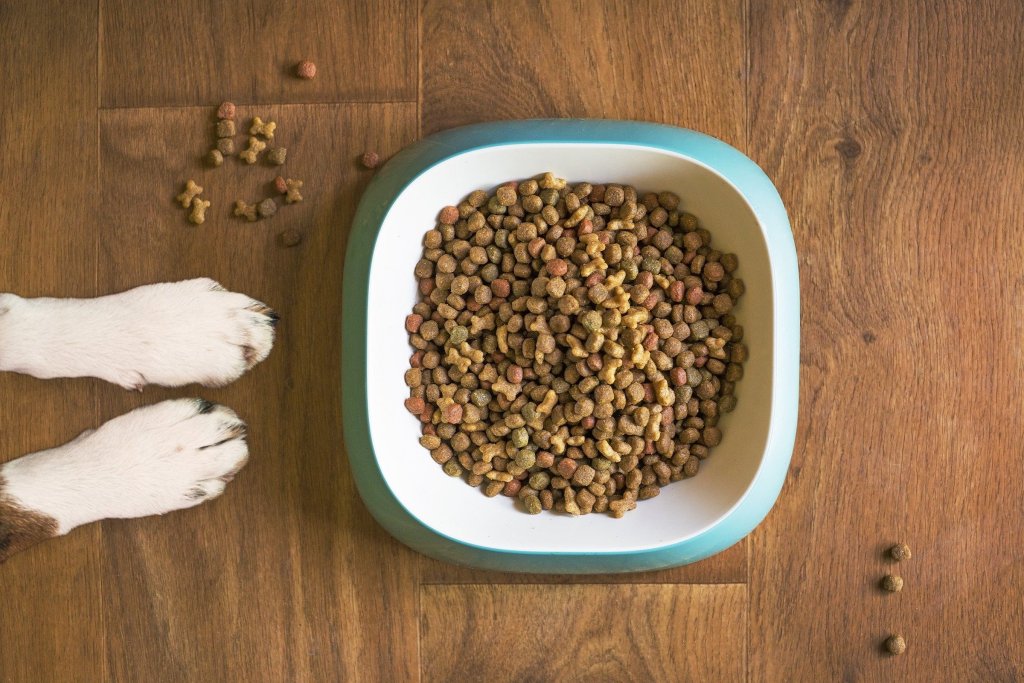Both dog owners and the companies behind pet products aim to create a safe and positive life for animals — including a healthy diet — but situations do occur. That’s why you need to know about the recent Sportmix dog food recall and the FDA’s warning letter to its parent company, Midwestern Pet Foods.
In late 2020, the FDA was notified of hundreds of pets who had either taken ill or died after consuming several brands of dry food from Midwestern Pet Food Inc. However, the investigation recently made headlines again. Here’s all the essential and most up-to-date information to help keep your dog happy and healthy.
Why was Sportmix recalled?
In December 2020 and January 2021, Midwestern Pet Food began issuing voluntary recalls of more than 100 different products of Sportmix, Pro Pac, Nunn, and Earthborn dry dog foods. These recalls were put into place after receiving complaints about pet illness and death linked to consuming these products. At that time, the Missouri Department of Agriculture tested samples of the foods in question and discovered incredibly high levels of aflatoxin, which can be fatal to pets.
Later in January, the recall was expanded to include all products containing corn or manufactured in their Oklahoma-located factory. These foods all have expiration dates no later than July 9, 2022.
In March 2021, Midwestern recalled even more of its products—several brands of kibble possibly exposed to Salmonella in their Illinois factory location. These brands include:
- CanineX
- Earthborn Holistic
- Venture
- Unrefined
- Sportmix Wholesomes, Sportmix and Meridian
- Pro Pac, Pro Pac Ultimates
- Sportstrail
An FDA investigation confirmed the presence of Salmonella in this manufacturing plant and its products. No confirmed reports of pet or human illness have been reported as of August 2021. A full list of the affected brands and products can be found at the end of this FDA report.
Despite ongoing investigations and recalls, this situation recently surfaced after the FDA issued a warning letter to Midwestern Pet Foods in August 2021. At the time of writing, over 130 pet deaths and another 220 illnesses have been linked to these recalled products.
In this letter, the FDA reports findings of aflatoxin levels as high as 558 parts per billion. This is extremely high compared to what’s considered safe —20 ppb and below. The letter also details the inspection that led to the discovery of Salmonella in the Illinois factory. Midwestern has 15 days to respond to the letter, explaining steps it has taken to correct any violations.

What is aflatoxin?
Aflatoxin—which is most commonly found in corn and grain ingredients—is a product of a mold called Aspergillus flavus. In small amounts, it can be harmless, but because dogs often eat the same food every day, these toxins can build up in their system. According to the FDA, when ingested in large amounts by pets, aflatoxins can cause symptoms such as:
- sluggishness
- loss of appetite
- vomiting
- jaundice
- unexplained bruising or bleeding
- diarrhea
In severe stages of poisoning, toxins can damage the blood’s ability to clot or the functionality of the liver. Some pets may not experience any symptoms in the early stages, which makes poisoning harder to detect. It’s important to note that this toxin may be present in pet food even if there is no visible mold (via FDA).
What is Salmonella?
Salmonella is a fast-acting, bacterial disease that affects the digestive tract. While it was not an initial cause for recall, this bacteria was found in both the pet foods and the factory where they’re made. This was not uncovered until the FDA began inspections of Midwestern Pet Foods, whose manufacturing facilities “revealed evidence of significant violations of the Current Good Manufacturing Practice, Hazard Analysis, and Risk-Based Preventive Controls for Food for Animals regulation” (via FDA).

Pet food rules and regulations
Officially, the Food and Drug Administration regulates pet foods and treats in the United States, though new products do not have to be approved by the FDA before they hit shelves. Certain ingredients, however, do require approval to make sure they’re safe for consumption. These include colors, flavorings, preservatives, vitamins, minerals, and other sources of added nutrients.
When inspecting products, the FDA looks for a few things: that pet foods are made in sanitary environments, that they contain no harmful ingredients, that they are safe for consumption, and that they are labeled truthfully.
What you should do
Since recalls have been in effect for several months now, none of the affected products should be on the shelves or available for purchase wherever you shop. For kibble at home, double-check all bags and labels (this is just one reason to keep your dog’s food bag) to make sure you don’t own any of the recalled food. If you do—throw it out immediately.
If your dog has been eating any of these pet foods, keep an eye on their health and behavior for a while. If anything seems off, or if they’ve been eating the recalled food for a while, it’s not a bad idea to let your veterinarian know what’s going on.
Editors' Recommendations
- Can dogs eat oranges? Read this before feeding your pet
- Can dogs eat pineapple? What you need to know
- Does your dog drink a lot of water? Here’s when you should be concerned
- Can dogs eat mango? Read this first
- Can dogs eat celery? The do’s and don’ts you should know




